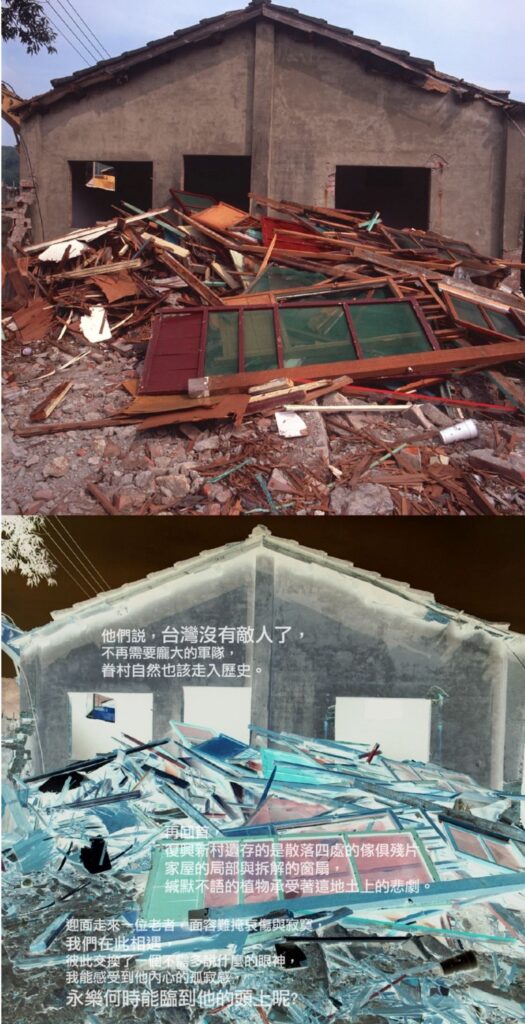![]()
Shur-Tzy Hou (b. 1962)
About the artist
Lulu Shur-tzy Hou’s work offers commentaries on the socio-economic issues in modern Taiwan in the context of gender, self-identity, marginalisation and cultural heritage. Hou received her Master of Fine Arts in Imaging Arts from the Rochester Institute of Technology in 1992. She furthered her artistic training at the Sculpture Department of Alfred University, New York and the International Museum of Photography, George Eastman House. She quickly gained recognition in artistic circles following her return to Taiwan in 1994 and was awarded Taipei Best Photographer of the Year at the Taipei International Post-Industrial Art Festival in 1995. Profoundly feminist, Hou’s earlier work touches on concerns relating to the exploitation of young women in southern Taiwan. Her multimedia documentary project ‘Look Toward the Other Side: Song of Asian Foreign Brides in Taiwan’ sheds light on the lives of young foreign brides being sold to Taiwanese men. It was later exhibited as a series, with the first part exhibited as Border-crossing / Diaspora—Song of Asian Foreign Brides in Taiwan (I) (Tsinghua University Art Center, Hsinchu, 2005), Border-crossing/Cultural identities: The Song of the Asian Foreign Brides in Taiwan (II) (Kao Yuan University, Kaohsiung, 2008) and Looking Toward the Other Side: Song of Asian Foreign Brides in Taiwan (III) (Kuandu Museum of Fine Arts, Taipei, 2009). The series features Pingtung-based young foreign brides in Taiwan and their families who are left behind in Vietnam, Cambodia, Thailand and Indonesia. Hou recorded the brides’ voices so that they could act as narrators and prevent the othering of these already-marginalised women. Hou’s project sought to give these women a public platform through which to express their struggles with cultural differences and self-identity that underscore many of these transnational marriages in the hope of raising awareness of this widespread issue in Taiwan.
Work being shown at ATM
Name: Out of Place (2009 – 2022)
Location: Manchester Poetry Library and The Holden Gallery
Media: Inkjet prints
Description: For over a decade, Hou Shu-Tzu had investigated Taiwan’s military dependents’ villages, originally constructed for soldiers and their families following the Nationalist Party’s retreat from China. Now threatened by gentrification, Hou situates these sites within the “historical turn” of memory projects in Kaohsiung, tracing their legacies back to the Japanese colonialism. Through research, interviews, legal action and photography, her interdisciplinary practice positions Taiwan as both an archive of Cold War history and a repository of individual life narratives, with particular attention to the role of femininity. While the “military village” embodies inexhaustible and entangled complexities, Hou’s work opens pathways for recognising continuities between past and future, assembling fragments of an unfinished cultural puzzle within the shifting world order.

